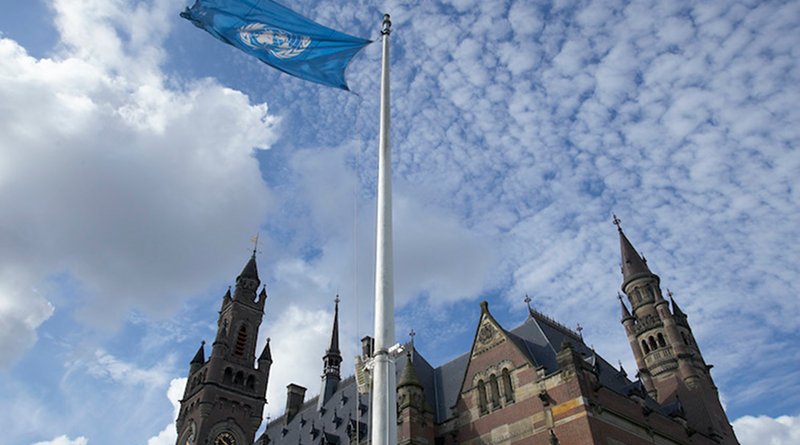Far-Reaching Implications Of ICJ’s Decision – OpEd
By Altaf Moti
The International Court of Justice (ICJ) recently issued a ruling on the case between South Africa and Israel. The ruling has been described as a massive victory for South Africa and a legal/moral defeat for Israel. The ICJ’s decision is expected to have far-reaching implications for international law and diplomacy.
The court ordered Israel to “take all measures within its power” to prevent acts of genocide in Gaza. The ruling has been met with mixed reactions from around the world.
The ICJ’s decision has significant implications for Israel and its allies. It is a repudiation of Israel’s actions in Gaza and a reminder that the international community is watching. The ruling also highlights the importance of international law and the role of the ICJ in upholding it. The case is still pending, and it may be years before a final decision is reached. However, the interim ruling is a significant step forward for South Africa and the Palestinian people .
The ICJ’s decision is a significant development in the ongoing conflict between Israel and Palestine. The ruling has been praised by human rights organizations and condemned by Israel and its allies. The decision is a reminder that the international community is watching and that Israel’s actions in Gaza will not go unnoticed.
The ICJ is the principal judicial organ of the United Nations and is responsible for settling legal disputes between states. The court’s decision in this case is a reminder that international law must be respected and upheld by all nations.
The dispute between South Africa and Israel began in 2022 when South Africa filed a case against Israel at the International Court of Justice (ICJ), alleging that Israel had committed genocide against the Palestinian people in the Gaza Strip. South Africa argued that Israel’s military campaign in Gaza had resulted in the displacement of 85% of the population, the cutting off of water and electricity, the collapse of health facilities, and an estimated 25,000 deaths. South Africa further claimed that Israel had violated the Genocide Convention by intentionally inflicting conditions of life calculated to bring about the physical destruction of the Palestinian people.
The key legal issues at stake in the case were the jurisdiction of the ICJ to hear the case, the test for granting provisional measures and the test for genocidal intent. Israel argued that the ICJ did not have jurisdiction to hear the case, but the court ultimately ruled that it did. The court also granted provisional measures against Israel, indicating that its actions in Gaza were plausibly genocidal. The ICJ’s decision was widely hailed as a victory for South Africa’s legal strategy and a moral defeat for Israel.
The ICJ’s ruling had two particular consequences. The trivial one is that it will result, hopefully, in a reduction of published opinions by self-appointed international law experts who presumably discovered the Genocide Convention about a month ago — the very same who were criminal law specialists during the Oscar Pistorius trial. The truly significant effect is that the judgment and order represent a massive victory for the South African legal strategy and a devastating legal and more importantly, moral defeat for Israel. The judgment of the majority of the court negotiated some tricky legal terrain put up by the Israeli lawyers. In particular, the question of the jurisdiction of the court to hear the case, the test for granting provisional measures and the concomitant test for genocidal intent were key to the disposition of the case. The Israeli argument regarding jurisdiction was not without some merit. As is evident from a reading of Gambia v Myanmar, the court in that case paid considerable attention to whether a dispute was properly before the court with great reference to whether the parties had engaged properly before the referral. However, as was evident from the judgment, the court was confronted with egregious levels of destruction and death directly linked to Israel’s military bombardment. It was not going to refuse to hear such a case on a purely technical basis.
The court ordered Israel to take action to prevent acts of genocide, including by its own forces, prevent and punish incitement to commit genocide and take measures to improve the humanitarian situation in Gaza. The rulings are binding and cannot be appealed against, although the court has no power to enforce them. The ICJ’s decision is expected to have significant implications for international law and diplomacy. It is likely to embolden other countries to pursue similar cases against Israel and other nations accused of human rights abuses. The ruling may also lead to increased pressure on Israel to change its policies towards the Palestinian people and to comply with international law.
The ruling may encourage other countries to pursue similar cases against Israel and other nations accused of human rights abuses, and it may also lead to increased pressure on Israel to change its policies towards the Palestinian people and to comply with international law. The ICJ’s decision is a reminder that international law is an important tool for holding nations accountable for their actions, and that the international community has a responsibility to protect human rights and prevent genocide.

